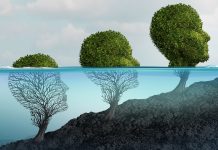In October 2012, Forbes magazine published a list of the top 25 biggest regrets people have. According to the magazine, the most significant regrets are those concerning relationships with family members and friends, regrets concerning oneself, and career regrets.
The following is a summary of the top regrets: the regret of not spending more time with one’s spouse and children; the regret of not being able to maintain harmonious relationships; the regret of not taking the first step in initiating a relationship with the person one is secretly in love with; the regret of not having visited someone suffering from an incurable disease at the hospital or at home; the lack of trust in one’s own strength, and concerns regarding other people’s opinions; and the regret of not having done more to get that dream job.
Besides regrets regarding daily decisions, people experience two main types of regrets throughout their lives: regret of commission, concerning actions (they regret something they did) and the regret of omission, based on lack of action (a desire that has not been actualised). The results of a study involving 370 adults (equally divided according to gender) show that regrets associated with a choice that came to fruition are initially painful but don’t last as long as those associated with desires that never came to be.
Regrets about love proved to be more intense than career-related regrets, and the regrets were stronger if they concerned a big personal loss—the loss of a life partner or lover.
Researchers discovered several patterns. Women tend to ascribe more importance to social relationships than men and have more love-related regrets, compared to men, who have more career-related regrets.
Writer and composer Bronnie Ware (editorialist for the Huffington Post) compiled a list of the top 5 regrets people have on their death-beds: 1) I regret I lived my life more like others expected me to do and less like I felt I should; 2) I wish I had worked less and enjoyed life more; 3) I regret not having had the courage to express my feelings; 4) I am sorry I did not spend more time with friends; 5) I do not understand why I did not do everything I could do to be happy.
Established goals determine happiness
When asked about their general source of contentment, people do not hesitate to mention, among others, their job, family life, material income, free time, etc. In other words, the level of satisfaction is measured in relation to different life areas.
Models of building life satisfactionFrom a theoretical perspective, satisfaction is “the subjective state resulting from the fulfillment of one’s needs, the lack of tension and anxiety; it is based on a positive appreciation of the way of life in general or of a particular state of life.”[1] Satisfaction is based on a positive appreciation of the way in which life develops, in the sense that “on the one hand it is used as a general indicator of subjective well-being, while on the other hand it is only a component (its cognitive one).”[2] Edward Diener is known for the models he has proposed in the analysis of satisfaction with the quality of life: bottom-up and top-down. According to the bottom-up perspective, general satisfaction is the result of the individual taking all life’s aspects into consideration, in a general evaluative measure. The top-down perspective says that general satisfaction determines the way in which the individual evaluates the different aspects of life.[3] In other words, the bottom-up model affirms the existence of a determining relationship from the bottom to the top (from life’s aspects to the general evaluation of satisfaction), while the top-down model supports the existence of a causality relationship from the top to the bottom (from general satisfaction to the evaluation of life’s aspects). |
People are not satisfied just with certain aspects of their lives, but they are also happy about them.
In this sense, a clear distinction between being satisfied and being happy is in order. Satisfaction (either with work, family, material income, etc.) and happiness are two indicators measuring the quality of life. The difference between the two indicators refers to the level at which the evaluation occurs, as Ruut Veenhoven says:[4]
1. Cognitive – in the case of satisfaction – subjective well-being is evaluated on a rational basis. One aims for the realization of a concrete image regarding the way in which the individual perceives life.
2. Emotional – in the case of happiness – it is the image of an emotional evaluation of life. Indicators regarding happiness are the result of the individual’s emotional involvement in the evaluation. An image which is deeply anchored in each person’s subjectivity is being drawn.
The principles of unhappiness
Blaise Pascal said “…we never actually live, but hope to live, and since we are always planning how to be happy, it is inevitable that we should never be so.” In other words, individual happiness depends, in the end, on the way in which individuals “allow” themselves to be happy.
How can we estimate if something will make us happy or unhappy? How do we feel after that thing has happened? The estimates we make are very important because all decisions we make depend on the emotional consequences of these events. Certain goals are established and happiness is conditional on their realization. However, after these are achieved, how accurate was the initial estimate in relation to the resulting state of happiness?
This question is answered by Dan Gilbert, psychology professor at Harvard, known for revolutionizing the principles of modern economy as well as for dispelling a series of myths such as: more is better; the wealthy are happy and the poor are unhappy; healthy people are happy and sick people are unhappy.
Dan Gilbert discovered people are able to correctly estimate which of two different events brings a higher state of happiness, but fall short when it comes to predicting the degree of happiness each separate event will bring. Studies led to the formulation of certain “principles of unhappiness.”[5]
Principle 1: People overestimate the duration and intensity of emotions given by material things, and underestimate the duration and intensity of emotions generated by experiences. In reality, people discover that the duration and intensity given by experiences are much greater than the duration and intensity of emotions generated by things they buy or receive.
If a person should predict, on a scale from 1 to 10, how happy they would be if they went to a concert and on a scale from -10 to -1 how unhappy they would be if they got stuck in an elevator, the calculations would turn out terribly wrong. Gilbert’s experiments showed that, although the tendency is to estimate that going to a concert is a 10, in reality, 10 minutes after leaving the respective place the state of happiness would be rated with a 3 or 4. If it is believed that being stuck in an elevator leads to a state of total unhappiness (rated with a -10), in reality people will situate themselves at 3 or 4 on the happiness scale—that is, the same as for the concert! It may seem paradoxical, but this is the effect.
Principle 2: The state of unhappiness is induced by the existence of several options and the possibility to change the initial decision. In another experiment conducted by Dan Gilbert[6] students who had participated in a photography class were given the opportunity to keep one photo they deemed representative of their work. Half of the students received this information, while the other half was told that if they wanted to change their option, they could choose another photo instead of the one they had initially chosen. After a month, when all the students were asked how happy they were with the choice they had made, those who had the option of changing their decision (even if they hadn’t made us of it) were much unhappier than those who did not get this chance. The more options we have, the unhappier we are, because, in reality we do not know how to correctly estimate how much happiness a certain choice brings.
Principle 3: Getting things fast leads to unhappiness. The human psyche includes the imagination, alongside other psychological processes. This plays a very important role when we anticipate different scenarios. Experiments conducted by psychologists have emphasized that pleasure and happiness depend on anticipation.
Planning a much-desired trip implies imagining every detail thereof: what the sky will look like at sunset; the taste of the food; the sensations experienced once one arrives in that place. Getting different things very easily cause one to lose this pleasure of anticipation.
This is why anything we buy just to satisfy our pleasure leads to experiencing only a momentary intense pleasure.
Principle 4: The more money people have, the less they enjoy what happens to them. A study conducted in 2006 by Daniel Kahneman and his peers[7] proved that in a world in which everything tends to become “bigger”, “more expensive”, “more shiny”, the more money people have the less pleasure and flavour they derive from small things.
Being satisfied with your own life is a willpower exercise
Fulfilment may come once we give up old decisions and rethink the scenarios of our lives. The feeling of fulfilment must not be dictated by objects, but by ideas, thoughts, perspectives on life—by those elements each of us can generate and develop regardless of the exterior conditions of our lives.
We must not deem others responsible for our fulfilment. We must find a way to ensure fulfilment in our own strength: self-change, constructive work on ourselves, aspects that must be given up in order to achieve harmony with ourselves and those around us.
Last but not least, the feeling of happiness/contentment lies in the relationship with God. Internal balance reflects the individual’s relationship with God. Some biblical exhortations are suggestive of this: “All the days of the oppressed are wretched, but the cheerful heart has a continual feast” (Proverbs 15:15), or “Give thanks in all circumstances; for this is God’s will for you in Christ Jesus” (1 Thessalonians 5:18).
In all that they do, humans should avoid wasting themselves away. They must instead analyse themselves. If they resemble the prodigal son from the biblical parable, if they pile up good deeds but there is a discrepancy between what they say and what they do, a change in attitude is in order. If they resemble the prodigal son then they must avoid wrong choices as much as possible.
American writer Nelson Richard DeMille says that “…we are all pilgrims on the same journey, only some of the pilgrims have better maps.” The quality of the map is given by the individual’s ability to decipher that map’s coordinates. Even if we all live under the same heaven, we have different horizons.[8]
We must be aware that there are actions whose effects have a decisive impact not only on ourselves but also on those around us.
From this perspective, there are four things that cannot be recovered: the stone after it’s been cast; the word after it’s been spoken; the opportunity after it’s been lost, and time after it has passed by! A stone cast into the water produces changes not only inside it but also on its surface. The stone can be retrieved but the ripples created by its fall into the water are not reversible. Words are a double-edged sword—they can lift one up or break one down. Once spoken, the significance and impact they have on the individual cannot be reversed! Apologies, even when accepted, do not cancel the emotional impact spoken words have had on the individual. Opportunities and time are like trains—their loss carries with them the loss of the journey we were meant for.
Life brings many trials our way. However, we must not overlook the reason we fight—to ensure the motivation to move on—and the faith that every victory will make us better people.



















